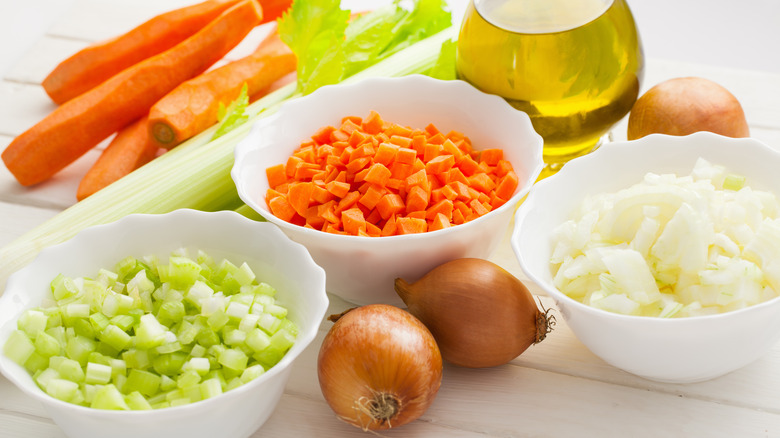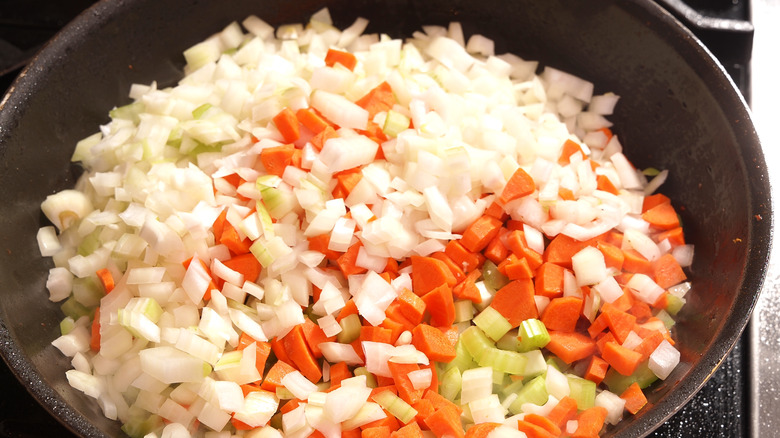The Chopping Tip To Keep In Mind When Preparing Mirepoix
Mirepoix, that classic trio of carrots, onions, and celery, is the foundational flavor base for countless savory dishes, from soups to stews and sauces. The key to achieving the perfect mirepoix lies not only in selecting the freshest ingredients but also in mastering the art of chopping these vegetables to achieve culinary harmony. In most cases, it's best to chop them into small, uniform pieces. The goal is to ensure even cooking, as these aromatic vegetables release their flavors and meld together, creating a harmonious base for your dishes.
Cutting the vegetables into similar-sized pieces ensures that they cook at the same rate, preventing some from becoming overcooked and mushy while others remain undercooked. Smaller pieces allow for faster and more consistent flavor infusion. When the vegetables are uniformly sized, they release their flavors more evenly into your dishes, resulting in a balanced and well-rounded taste. While small and uniform is the general rule for mirepoix, there are exceptions. For dishes that require long simmering or slow cooking, like hearty stews and braises, you may want to opt for larger-cut pieces.
Chop larger pieces for longer cooking recipes
Extended cooking times can turn your finely chopped mirepoix into a mushy, unrecognizable mess. Larger pieces will hold up better and maintain their texture, and because there's less exposed surface area, will gradually release their flavors, adding depth to your dishes throughout the cook.
There are a few styles of dishes you can always count on prepping larger pieces of onion, celery, and carrot. A slow-simmering sauce such as coq au vin, the basic filling for a country pot pie, and even cassoulet are perfect examples of dishes that are well suited to larger chunks of vegetables. While a quickly prepared chicken soup will cook smaller chopped veggies through in a flash, the days that call for it are better for a relaxed simmer, where bulkier bites can soften in their own good time. Mirepoix is the heart and soul of many culinary masterpieces, and giving due consideration to when a fine or rough cut is appropriate, will give your dishes — whether it's a stew, roast, or flaky bake — the best chance of success.

